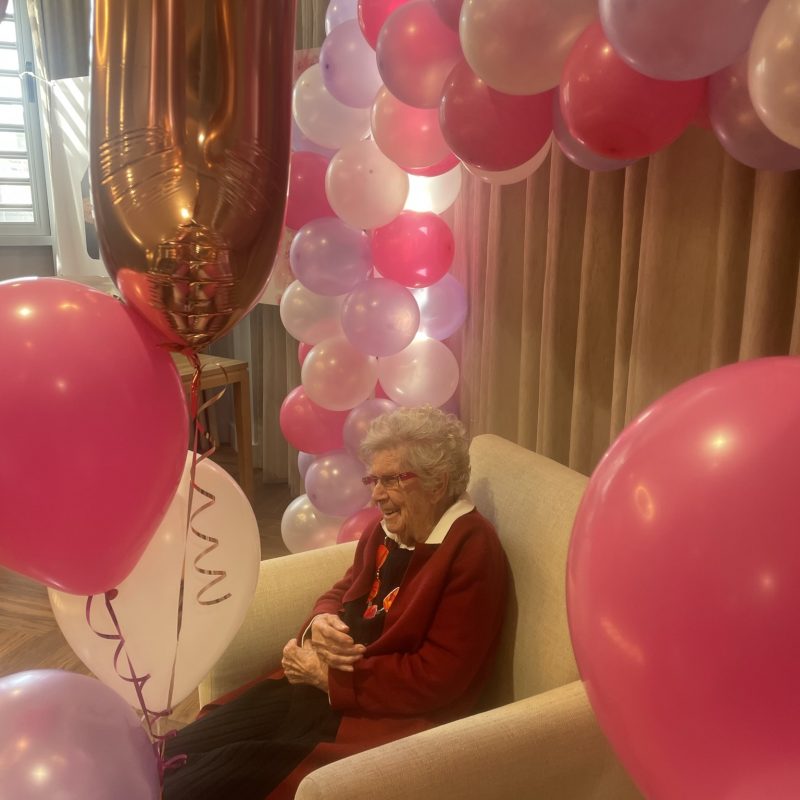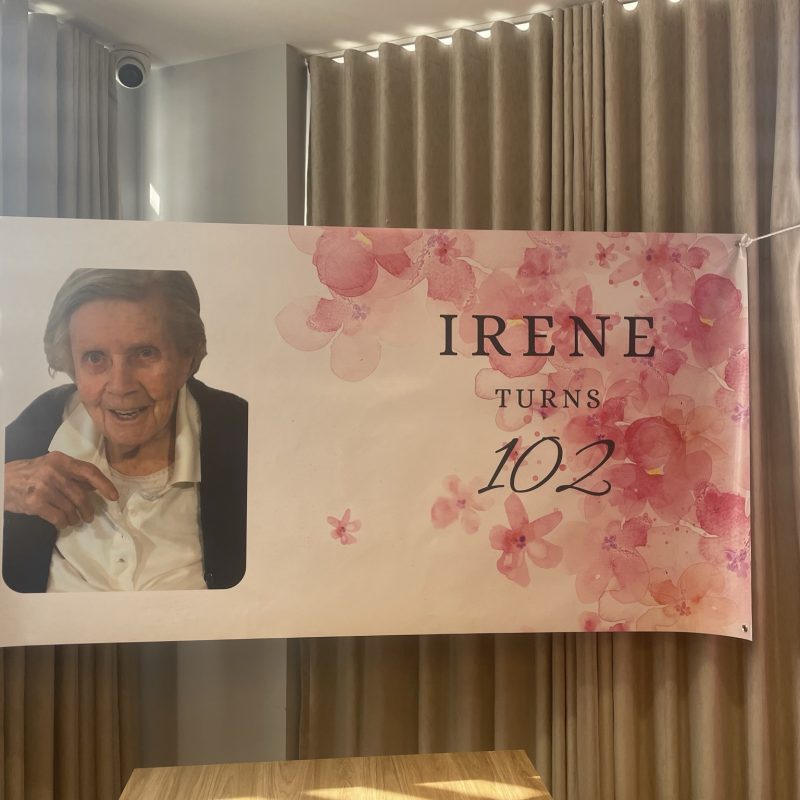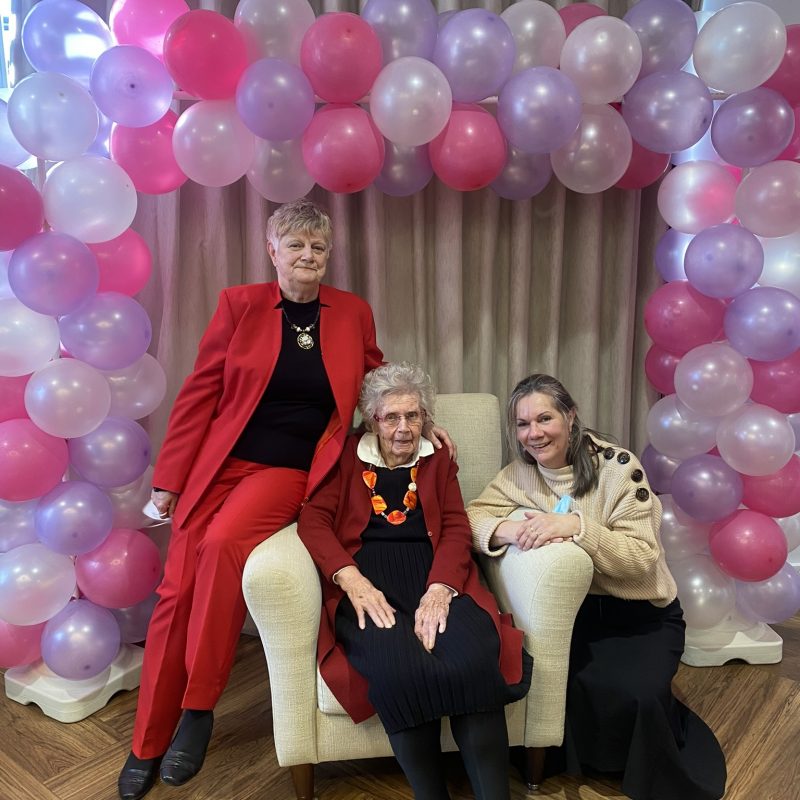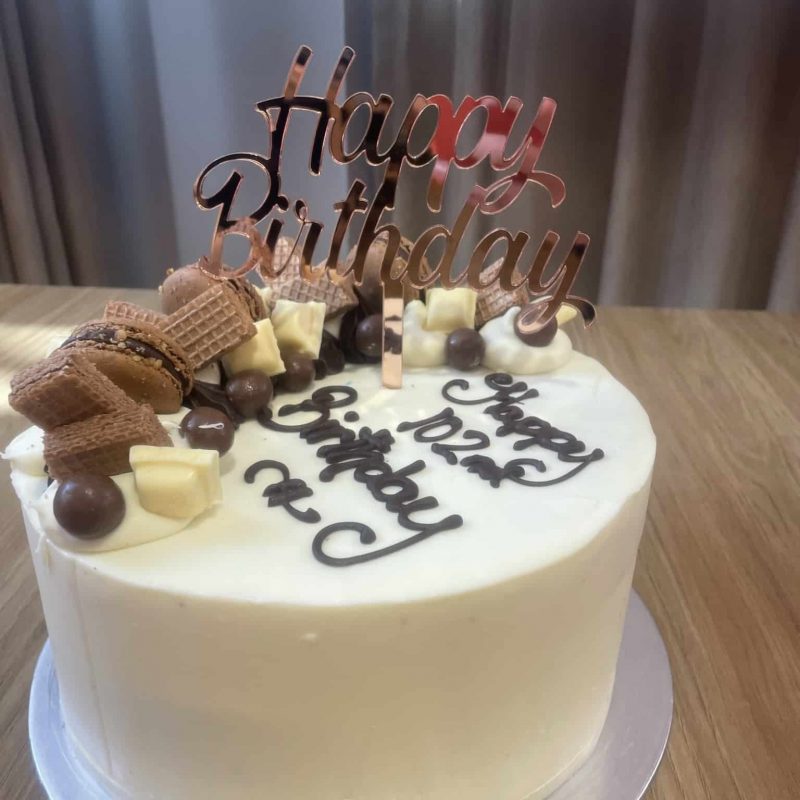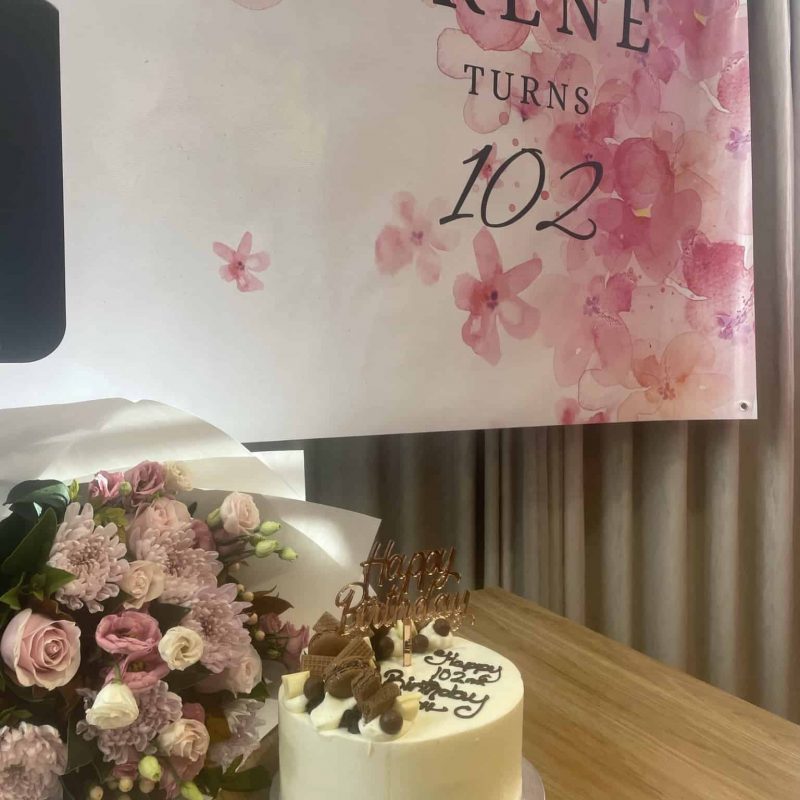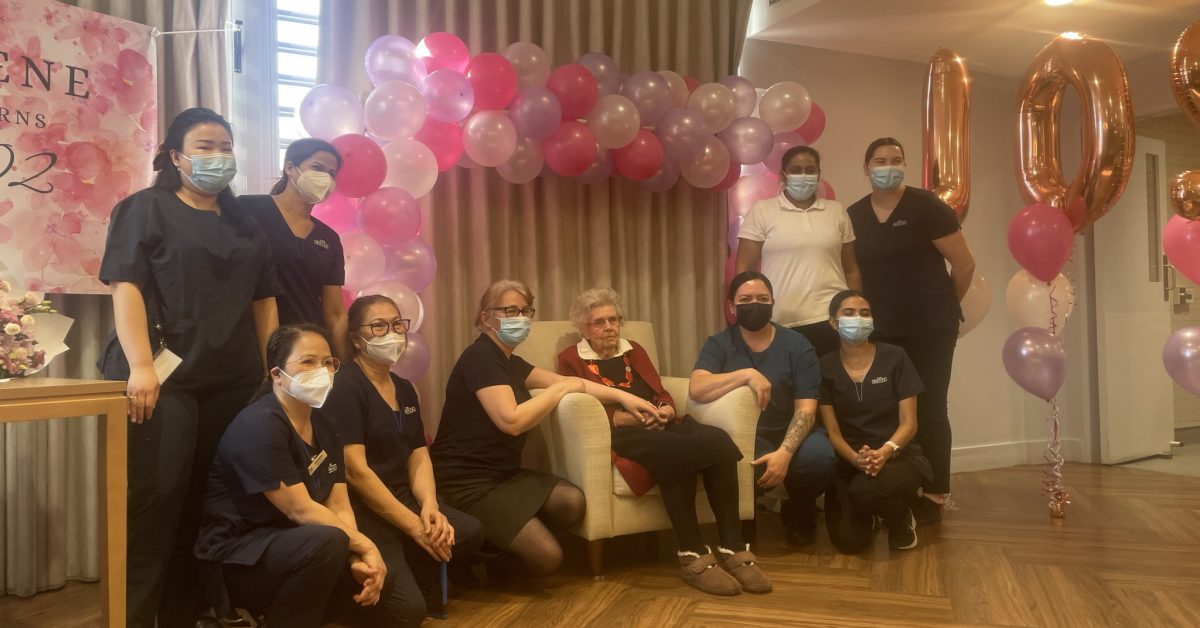STORY ORIGINALLY PUBLISHED BY:
Noel Rowsell for Nepean News
Irene Beck turned 102 on Saturday 30th July and celebrated the occasion one day early, on Friday 29th July, surrounded by family, fellow residents and staff on the 5th floor of The Royce.
Born in 1920 in Breslau, Germany, Irene was her mother’s 11th child but failed to find love at home, adopted out as a 14-day old baby to a loving couple who were unable to have children of their own.
Irene found love with her adopted parents, forming a close bond with both and enjoying a normal childhood, albeit under harsh living conditions due to food shortages.
Irene met first husband Paul through Ballroom Dancing and they had an immediate connection.
Paul and Irene both studied Morse Code and after both were drafted, to the Air Force and Police Force respectively, used to contact each other at their different locations and chat via the airwaves.
Irene had Judy, her eldest daughter, in 1944, then was forced out of her house in the middle of the night by the feared SS, who gave her 10 minutes warning to collect whatever she could carry before leaving.
After narrowly avoiding being herded into train cars at the local Railway station, Irene was befriended by a stranger who arranged for two families to go to Lowenburg, where she lived until forced out by the Russians.
This was not Irene’s first experience with the Russian Armed Forces invading Germany, as a Russian plane had shot at her and a group of villagers travelling along a country road. Irene was luckily unscathed but the milk pail she was carrying was hit, which was a fortunate miss by the enemy.
Irene started bleeding during her second pregnancy (with Dennis) and was rushed to hospital for treatment.
Just before anything could be done, the hospital was evacuated as the staff and patients fled to escape Russian troops entering the town.
Irene was on the road again, travelling with her close friend and other villagers, plus wounded troops, through Czechoslovakia and on to Bavaria, with German forces blowing bridges after the train had passed to slow the Russian advance.
Irene and her friend were both now fluchtling (refugees), spending the remaining years of the war in Unterbechingen, where Irene survived by knitting, sewing, crocheting and mending items for the farmers.


